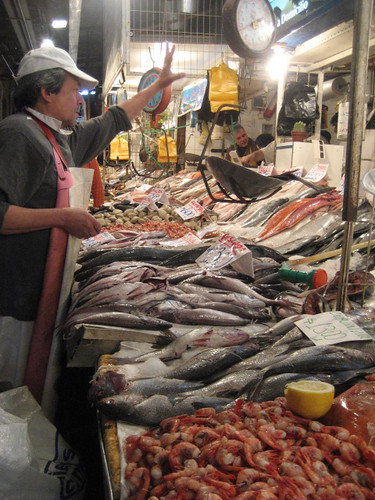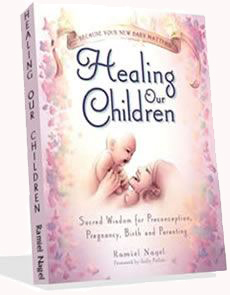What You Need to Know About Mercury Levels in Fish
Conventional doctors often tell pregnant women that they need to drastically limit their seafood consumption, or simply avoid it until the pregnancy is over. The belief is that mercury can be present in fish, especially large fish, and a baby can be harmed if the mother consumed mercury during the pregnancy. But, the truth is that women actually need healthy seafood ingredients when they are pregnant, and there is actual scientific evidence that suggests that  the fears of mercury are blown out of proportion. This article is going to talk about a few things that you need to understand in regards to seafood and mercury during pregnancy:
the fears of mercury are blown out of proportion. This article is going to talk about a few things that you need to understand in regards to seafood and mercury during pregnancy:
Mercury is Naturally Occurring in Food
Generally, most people believe that mercury comes only from fossil fuel burning as well as industrialization, but the truth is that it is also a byproduct that is naturally produced in many organisms, especially animals that are in the water. Methyl mercury is an organic mercury that is naturally formed in these foods, and it has been a part of the human diet for many, many years. Our modern day problem lies in the fact that there are high levels of industrial mercury, which are spilling into water sources such as oceans, lakes, and rives. These water sources are contaminated, causing the animal inhabitants to be poisoned. When humans consume animals that are poisoned with mercury, the contamination enters into the human body. There is a difference between this industrial mercury and natural mercury, and it appears that natural mercury has not negative affects on human health.
Other Sources of Mercury in Our Food
Mercury levels in humans are increasing, but this increase is not usually caused only by fish. In fact, mercury is commonly found in numerous food additives and people are exposed to mercury through vaccines as well. Even though some vaccines claim that they don’t contain any mercury, the truth is that it is usually still present as a preservative… and the commonly used flu vaccine has a high amount of mercury in it! These sources are more of a risk for unhealthy mercury exposure than fish and seafood.
Benefits vs. Risks of Seafood and Mercury Consumption
Studies have been completed that looked at populations who naturally consume fish in high amounts, and some of the areas contained environmental mercury levels that were considered unsafe. In the Seychelles Islands, one study found that women who consumed fish about twelve times a week, and they tested with higher than average mercury levels in their blood. However, the babies that were born from these women were perfectly healthy! In this study, the smarter children were born to the women who consumed higher amounts of fish, which suggests that the risks of mercury in the fish are far outweighed by the benefits of the nutritional value available in the fish!
The mercury poisoning fears date back to the 1950s, and Japan’s Minamata Bay had substantial amounts of methyl mercury dumped into the water. When this happened, mercury poisoning did cause problems for new babies and their mothers, but methyl mercury was highly concentrated and much stronger than the levels that are currently found in rivers, lakes, or oceans. Since that one incident, there have been no other reports of fish causing mercury poisoning!
So, it is clear that because healthier children and smarter babies can be produced from consuming fish, the pregnant women should consume the fish often… not worrying about the mercury because the risks of an overdose is very unlikely. Of course, use common sense and find the fish from the cleanest, least polluted areas, because they will be healthier and have higher levels of nutrients for you and your baby.
So, if you have been fearful of eating fish during pregnancy, don’t get caught up in this myth… focus on the nutritional benefits and data based on scientific evidence. Eating seafood during pregnancy will provide you and your baby great nutrition!
There is more information about what you should be eating during pregnancy in the book, Healing Our Children. The book contains scientifically-supported information which will help you make good nutrition choices each day, to make the best decisions for you and your baby.
Photo Credit: squakingalah from







